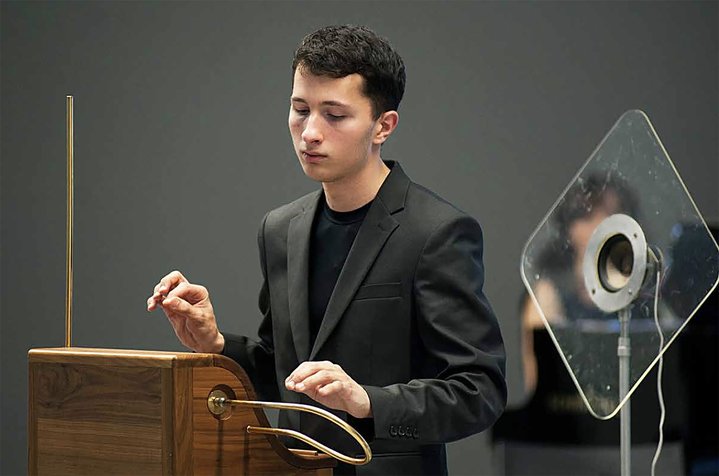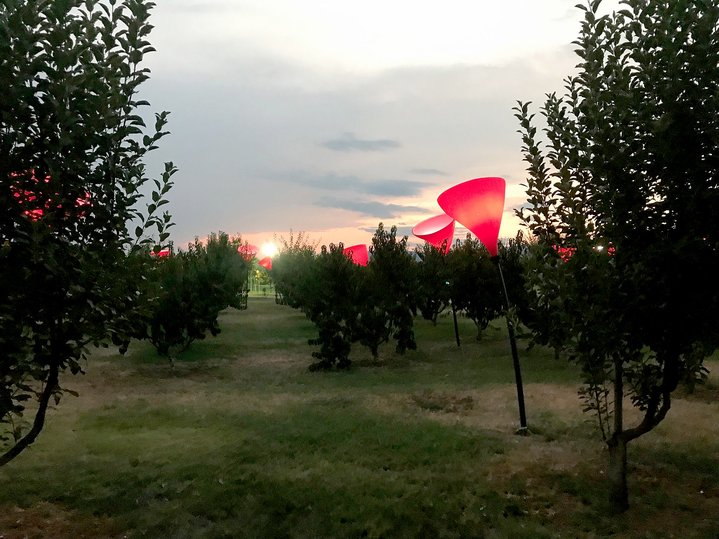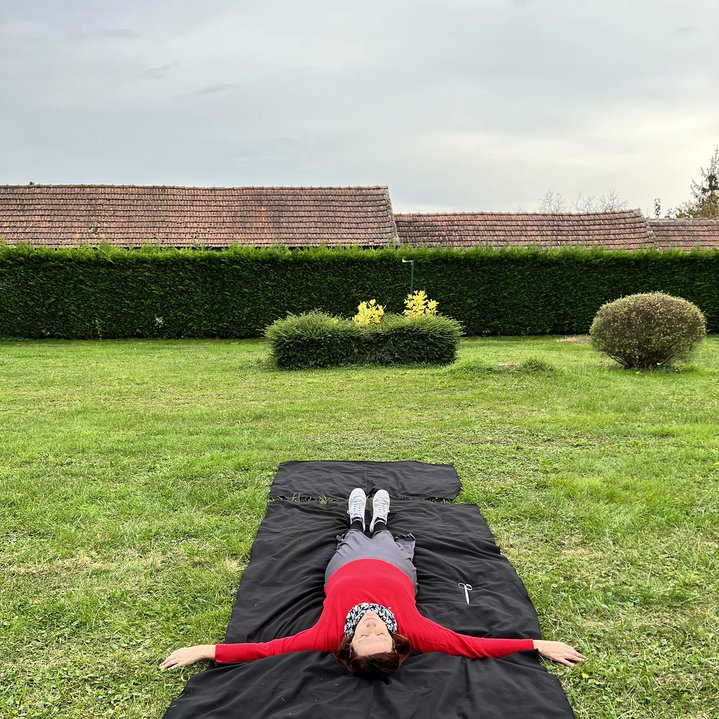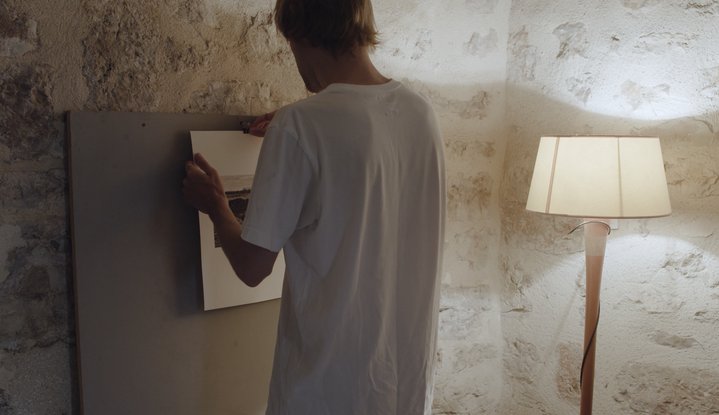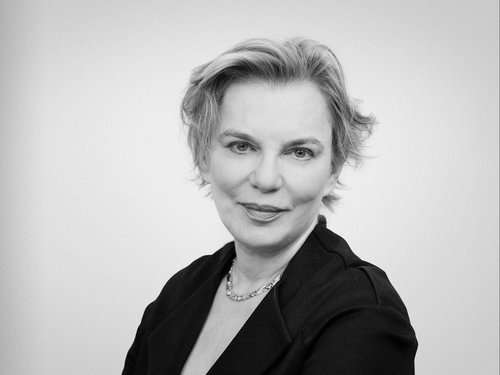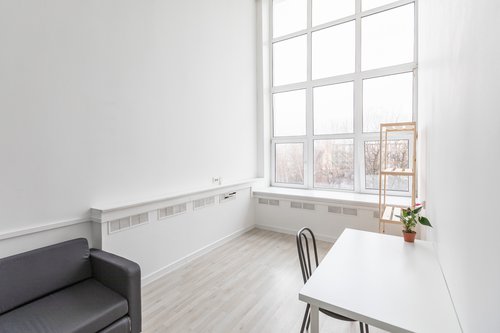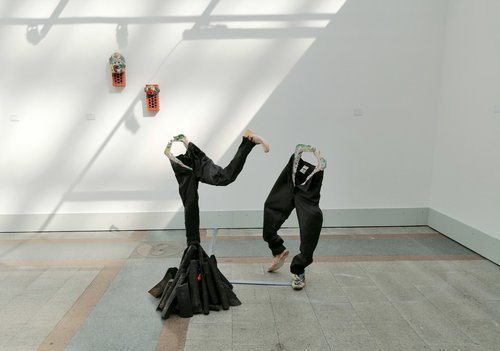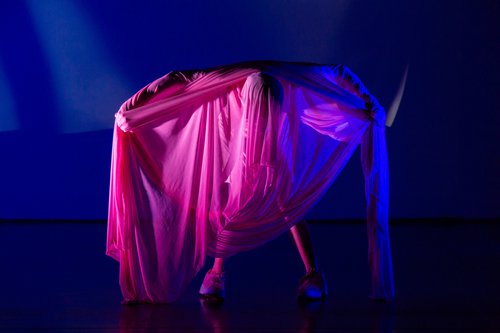Evgeny Granilshchikov. Know Nothing. Never Forget. Video still. France, Maisons Daura, 2022
Russian contemporary artists supported in exile
Despite calls to cancel Russian culture post February 2022, there are many institutions around the world who are helping contemporary Russian artists who either left Russia on their own accord or were forced to leave their homeland.
It was an unexpected blow. My long awaited writer’s residency in Latvia in the Autum of 2022 was cancelled out of the blue. Latvian cultural officials had decided that anyone who had applied from Russia would not be welcome, and I assumed with a dose of pessimism that this would be the same case for most Russian creatives. Happily, I am wrong. Many institutions around the world are offering accommodation, studio spaces and a stipend to artists who have had to leave Russia since the tragic events of last year.
A truly remarkable umbrella initiative is ‘Artists at Risk’, launched in 2013 by a Finnish non-profit called Perpetuum. Its ever-growing network of partner institutions includes 500 residencies hosting artists who have fled from their home countries. Today most applications come from the Ukraine and artists and cultural professionals from Russia and Belarus subject to persecution and political threats can also apply for a three-month emergency residency. Artists at Risk finds a suitable host institution for them in its partner network. So far they have helped 84 oppositionary artists from Russia and Belarus and their families. Although Finland is among those European countries to have banned Russian citizens from entering their borders with tourist visas since the Autumn of 2022, with the help of Artists at Risk, artist and stage designer Ksenia Peretrukhina (b. 1972) and her playwright husband Mikhail Durnenkov have found temporary home at AR-Safe Haven residency in the Finnish capital, an institution co-founded by the city authorities.
Georgia and Turkey, Russia’s closest neighbours, attract a seemingly endless flow of immigrants because of their relaxed border regulations. Russian citizens can stay for up to two months in Turkey and as long as one year in Georgia without a visa (after which many move on to Western Europe). A foundation owned by Georgian fashion designer Ria Keburia, in partnership with Ipureland, an American artist consultancy, have launched a residency and professional development program for artists who have left Russia and Belarus. They host ten artists at a time for around two months in the picturesque area of Kachreti. The organisers provide not only a stipend, studio space and accomodation, but also networking opportunities: there is an educational program with international art experts. Two groups of artists, chosen by curators Anna Evtiugina and Teona Yamanidze, have already benefited from this project, among them Dagnini (b. 1987), Nikita Seleznev (b. 1990) and Marina Koldobskaya (b. 1961). Koldobskaya, a painter and ceramic artist has now moved to Berlin. A small Russian initiative ‘NII Sreda’ that provided free studio space for artists in Moscow has now resumed these activities to Istanbul. There is a live-in studio, hosting one artist at a time.
In France, several institutions have joined forces to support Russian artists in distress. L’atelier des artists en exil (The Studio for Artists in Exile) has launched a dedicated hotline in Signal and Telegram. Cité Internationale des Arts, one of the country’s largest artist residencies, and ANDEA (The National Association of Art Schools) are also members of this alliance. ANDEA has recently hosted film-maker and video artist Evgeny Granilschikov (b. 1985) while textile artist Zhenya Machneva (b. 1988), the only Russian featured at the main project of the Venice Biennale in 2022, was invited to stay at Cité Internationale des Arts. Looking East, the privately funded Pasca artist residency has just opened in Hungary curated by St. Petersburg artists Olga Tobreluts (b. 1970) and Dmitry Shorin (b. 1971) who have been living and working in this small village for several years. As well as the usual support and living accommodation, artists such as Maria Arendt (b.1968) who was Pasca’s first resident can also relax at a thermal spa on the shores of Lake Heviz.
AES+F, a quartet of artists of Russian origin who have been long based in New York and Berlin, cut off all its ties with their home country after the conflict in Ukraine broke out. They continue their program which is aimed at their younger compatriots launched together with a well-known ISCP artist residency in New York, with organisational support from Ipureland. Every year, they invite one Russian artist to stay at ISCP for three months, offer one-to-one mentoring and organise studio visits by curators and other art professionals. In 2022, AES+F invited not one but two artists: Russian Ilya Fedotov-Fedorov (b.1988) and Ukrainian Pavlo Grazhdansky (b.1991). The next artist in residence will be Mikhail Tolmachev (b.1983). The program covers not just a round trip to New York but also pays for the artist to go to another country to obtain a US visa, a crucial point as the embassy in Moscow has not been issuing them since 2020. Unfortunately there is no open call and candidates are chosen by an international panel of experts.
An unusual initiative for artists who cannot leave Russia but wish to raise their voice in protest has been launched by Chto Delat, a collective of artists and activists from St. Petersburg. Its founding members Dmitry Vilensky (b. 1964) and Olga Yegorova (Tsaplya) (b. 1968) had to flee Russia themselves after their flat was searched by police in the summer of 2022. Having settled in Berlin, they announced an open call for the “creation of works in the field of contemporary visual art, the support and realisation of which is currently not possible in the Russian situation”. The winners will receive a stipend and production budget as well as the chance to display their work without personal risk: outside Russia, online or, if they prefer - anonymously. It is a timely initiative as censorship is on the sharp rise in Russia. Its artists may be between a rock and a hard place but as to cancel culture abroad, curator Anna Evtiugina points out, “international dialogue is and should be between people and especially artists as active members of society. Not between states”.
The author would like to thank Olesya Bolmatova from Ipureland for her advice and help in the preparation of this article.
Artists at Risk
L’atelier des artistes en exil
L’atelier des artistes en exil
Cite internationale des arts
ANDEA
Ipureland and Ria Keburia Foundation’s residency for artists in exile
Ipureland and Ria Keburia Foundation’s residency for artists in exile
NII Sreda
AES+F artist residency award
Chto Delat open call






